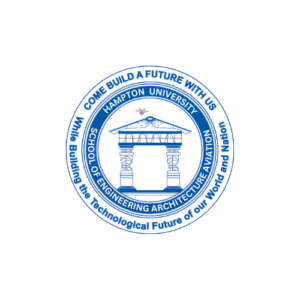AABI Accreditation
The Aviation Accreditation Board International (AABI) is the only professional accrediting organization approved by the Council on Higher Education (CHEA) to accredit aviation professional programs at universities in the nation and worldwide.
There are over 100 universities and colleges that offer aviation programs in the nation, only 40 have earned AABI accreditation.
Hampton University is proud to be one of the 40 institutions worldwide to be AABI accredited, with all three Aviation programs having this distinction. Current students and prospective students alike can rest assure knowing they will be receiving a degree from a program that has the highest standard of excellence, industry experts as faculty members, and networking opportunities that extend beyond the classroom.
The following student achievement data reports, including the objectives of each accredited program, program assessment measures employed, graduation rates, and rates and types of employment of graduates is published according to the Aviation Accreditation Board International (AABI) requirements.
Student Achievement Data – Air Traffic Control
Student Achievement Data – Airport Administration
Student Achievement Data – Flight Education
Department of Aviation Mission & Goals
The Department of Aviation in the School of Engineering and Technology provides students with preparation for a variety of careers in aviation. Combined with a strong liberal arts background, the aviation program prepares students to participate in building the future of the aviation industry. The Department also prepares its students to be professionals by demonstrating the value of life-long learning through research projects and the value of service to the University, aviation profession, and community.
The Department of Aviation is committed to providing a high-quality aviation education for all its students with faculty actively involved in advancing the aviation community. We strive to prepare students for meaningful aviation careers within government and the aerospace industry, and to instill a strong sense of social awareness and responsibility to the public. The Department of Aviation has established itself as a high-quality Bachelor of Science degree program with a national reputation for outstanding graduates.
Air Traffic Control Program Educational Objectives
PEO-1 – Demonstrate the ability to identify appropriate actions after careful evaluation of the evidence and reasoning presented in the communication process.
PEO-2 – Demonstrate the ability to identify ethical ideas, issues, and ethical principles relating to personal, professional, and academic conduct.
PEO-3 – Effectively deliver and receive spoken messages of depth and complexity in a manner that demonstrates confidence and knowledge of industry terminology and procedures.
PEO-4 – Prepare students for the employment as Air Traffic Control specialists and similar career fields that will benefit aviation and the transportation industry as a whole.
PEO-5 – Applied knowledge of Air Traffic Control basics as specified by the FAA Collegiate Training Initiative Program.
Airport Administration Program Educational Objectives
PEO-1– Demonstrate the ability to identify appropriate actions after careful evaluation of the evidence and reasoning presented in the communication process.
PEO-2 – Demonstrate the ability to identify ethical ideas, issues, and ethical principles relating to personal, professional, and academic conduct.
PEO-3– Effectively deliver and receive spoken messages of depth and complexity in a manner that demonstrates confidence and knowledge of industry terminology and procedures.
PEO-4 – Develop and express complex ideas clearly, coherently, and logically in a manner appropriate for purpose and demonstrates mastery of accepted industry standards of written communication.
PEO-5 – Identify impacts on aviation operations of international aviation law, including applicable International Civil Aviation Organization (ICAO) or other international standards and practices; and applicable national aviation law, regulations, and labor issues.
Flight Education Program Educational Objectives
PEO-1– Effectively describe the professional attributes, requirements, or certifications and planning applicable to aviation careers.
PEO-2 – Graduates must be able to evaluate aircraft safety and the impact of human factors on safety.
PEO-3– Applied knowledge of principles in aircraft design, performance, and operating characteristics; and the regulations related to maintenance of aircraft and associated systems.
PEO-4 – Develop and express complex ideas clearly, coherently, and logically in a manner appropriate for purpose and demonstrates mastery of accepted industry standards of written communication.
PEO-5 – Create highly skilled, professional pilots.
Department of Aviation Assessment Measures
The Department of Aviation uses several methods to gather direct and indirect assessment data over the course of each academic year. Some methods used include:
- Surveys (Student Surveys and Alumni Surveys)
- Capstone Projects
- Aviation Alumni Board Feedback
- Program Review
- Faculty Assessment and Discussion of Learning Outcomes
- Coursework, to include but not limited to; midterms exams, final exams, presentations.
